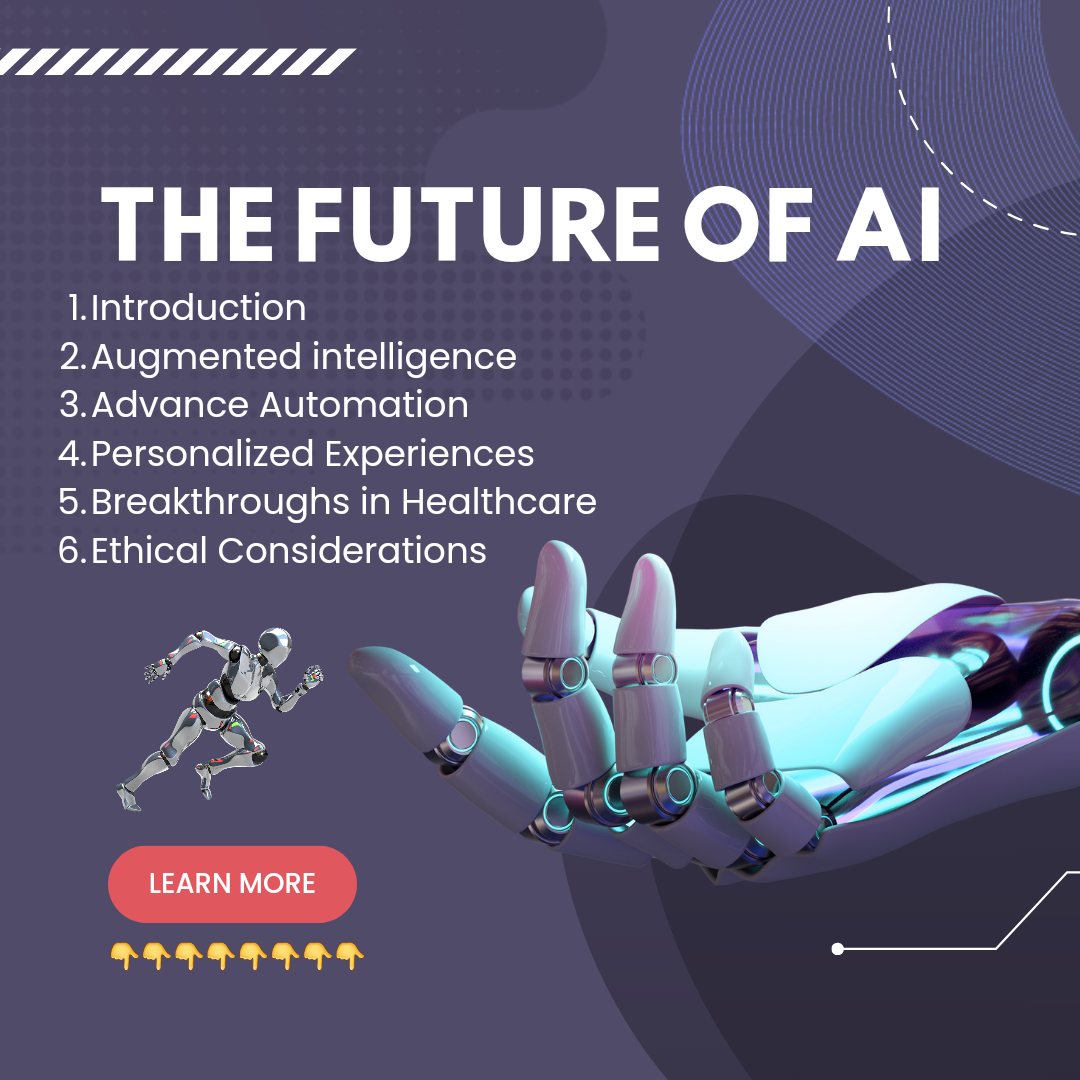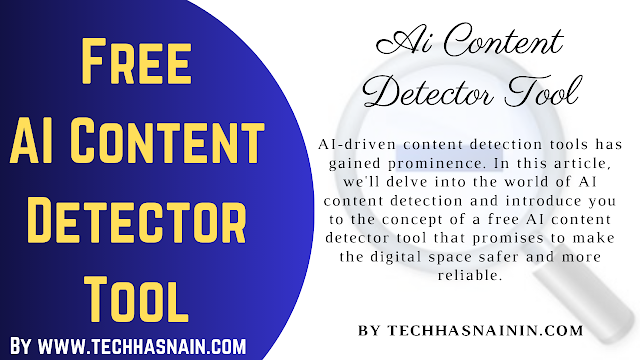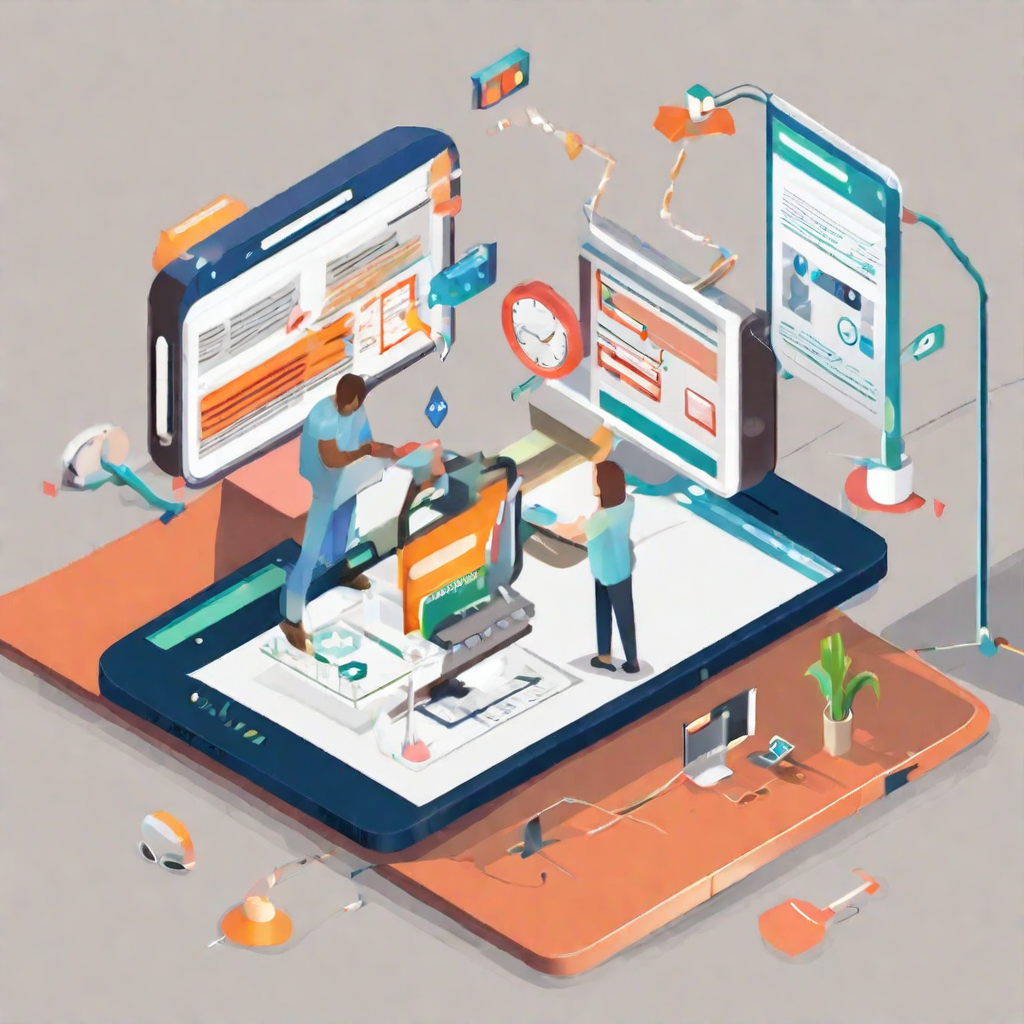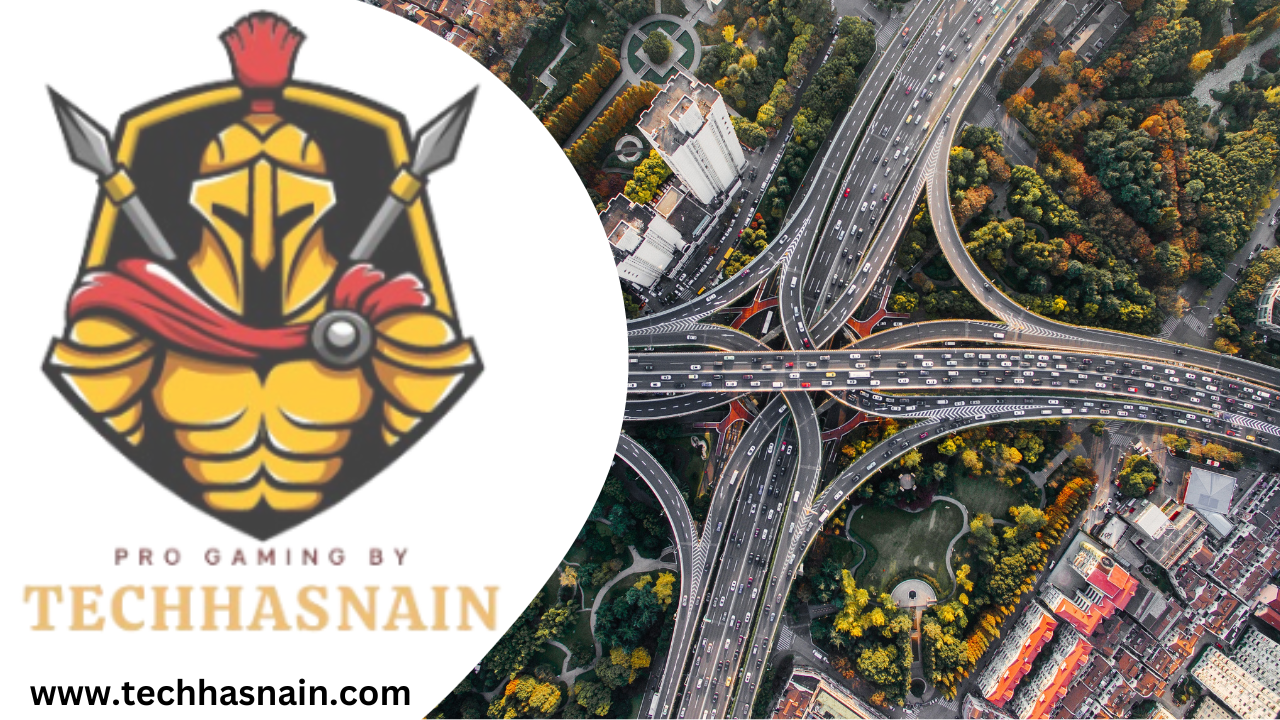Artificial Intelligence Overview 2023 to 2040
 |
1. Introduction Artificial Intelligence.
(AI) has revolutionised a number of sectors and changed the way people live, work, and interact with technology. It is a field that is rapidly developing. The potential of artificial intelligence (AI) is expected to grow as we move forward, offering significant developments that might transform civilization.
The future of AI holds enormous promise, from improved automation and customised experiences to advancements in healthcare and sustainability.
We will examine some significant future trends and opportunities in this blog, emphasising both the fascinating possibilities and the moral questions that the development of artificial intelligence raises.
2. Augmented intelligence.
AI is no longer merely used to automate repetitive jobs; it is becoming an essential part of how humans make decisions. Human and computer strengths are combined to create augmented intelligence, enabling people to make better decisions.
Intelligent insights, data-driven recommendations, and predictive analytics across a variety of fields will be made available by AI systems in the future, acting as potent tools that augment human abilities. Professionals will be able to handle difficult problems more effectively and make more informed judgements thanks to this collaborative approach.
3. Advanced Automation.
One of the main forces behind the adoption of AI has been automation, which has streamlined operations and improved efficiency. Automation will move further in the future, replacing repetitive activities across industries such as manufacturing, transportation, customer service, and finance with robots and algorithms powered by AI.
As technology advances and becomes better at learning from data, complicated jobs that once required human intervention will be performed by robots. The potential for job displacement may be raised, but there are also chances for reskilling the workforce and putting an emphasis on higher-value, creative, and strategic positions.
4. Personalised Experiences.
One of the main forces behind the adoption of AI has been automation, which has streamlined operations and improved efficiency. Automation will move further in the future, replacing repetitive activities across industries such as manufacturing, transportation, customer service, and finance with robots and algorithms powered by AI.
As technology advances and becomes better at learning from data, complicated jobs that once required human intervention will be performed by robots. The potential for job displacement may be raised, but there are also chances for reskilling the workforce and putting an emphasis on higher-value, creative, and strategic positions.
5. Breakthroughs in Healthcare.
One of the main forces behind the adoption of AI has been automation, which has streamlined operations and improved efficiency. Automation will move further in the future, replacing repetitive activities across industries such as manufacturing, transportation, customer service, and finance with robots and algorithms powered by AI.
As technology advances and becomes better at learning from data, complicated jobs that once required human intervention will be performed by robots. The potential for job displacement may be raised, but there are also chances for reskilling the workforce and putting an emphasis on higher-value, creative, and strategic positions.
6. Ethical Considerations.
The research and application of AI must prioritise ethical issues as it grows more widespread. To foster trust and guarantee ethical usage of AI technologies, problems including algorithmic bias, privacy issues, and job displacement must be addressed. AI systems should incorporate transparency, accountability, and fairness with a focus on understanding the potential societal repercussions and preventing unexpected outcomes. Establishing ethical standards and procedures that control the creation and application of AI technology also requires continual cooperation between legislators, researchers, and industry professionals.
FAQs
Q2:What will artificial intelligence (AI) look like in the future?
Q2:What are some important areas where AI will have a big future impact?
Q3: Will AI eventually take over our jobs?
Q4: What potential dangers could arise from AI in the future?
Q5: Will AI eventually develop sentience or consciousness?
Q6: What future effects will AI have on society and ethics?
Q7: Can AI help solve global problems and advance sustainability?
Q8: What are some upcoming AI trends for the near future?
Q9: How can people get ready for the potential of AI?
Q10: What impact may policymakers have on how AI develops in the future?
Conclusion:
Artificial intelligence has the power to drastically change a variety of facets of our life in the future. The future of AI will be shaped by a number of factors, including enhanced intelligence, advanced automation, customised experiences, medical advancements, and ethical issues.
Although AI presents a wealth of options, its appropriate and beneficial application depends on striking a balance between scientific development and ethical considerations. We can create a future in which intelligent technologies improve human skills and contribute to a more equitable and sustainable society by utilising AI's capability while tackling its ethical difficulties.
Related Posts:







Post a Comment
0 Comments